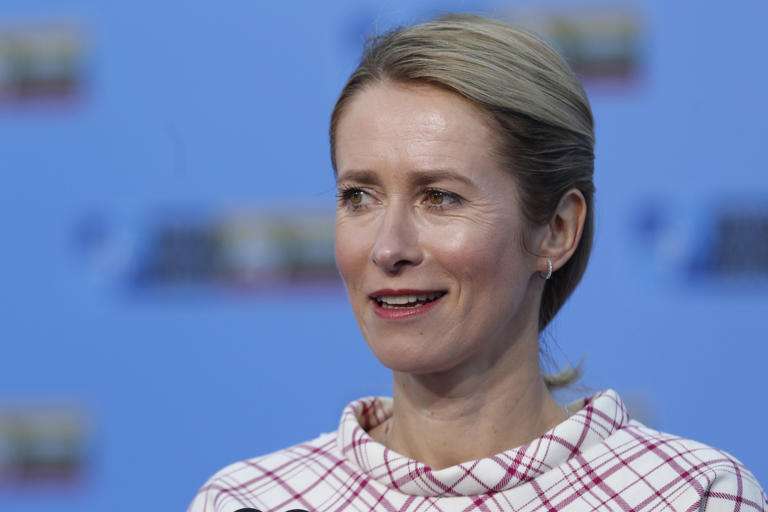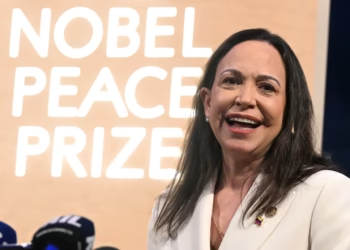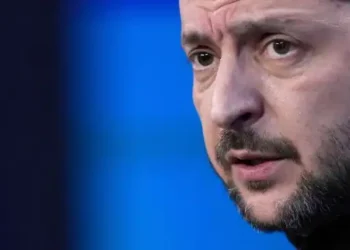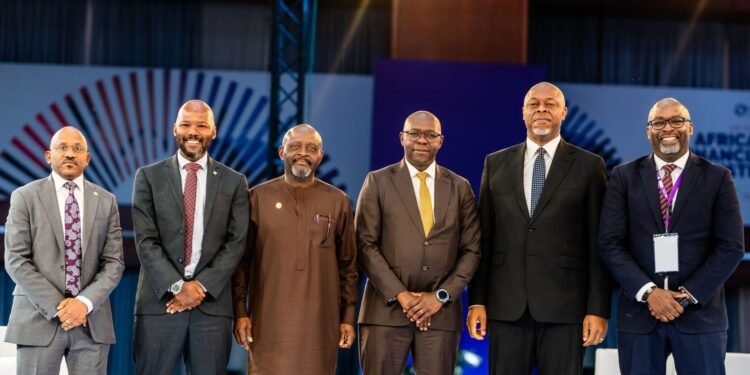Following Trump administration’s decision to reject visas for Palestinian Authority (PA) and Palestine Liberation Organization (PLO) officials, France’s Foreign Minister, Jean-Noel Barrot has called for restrictions on access to next month’s UN General Assembly to be removed.
Speaking at a meeting of EU Foreign Ministers in Denmark, Barrot stressed, “A UN General Assembly meeting… should not be subject to any restrictions on access.”
A string of Ministers in Copenhagen echoed France’s call for the United States to allow access to the Palestinian delegation.
The step by Washington to deny and revoke visas for Palestinian officials comes as France is leading a push to recognise the Palestinian state at the gathering of world leaders in New York. Australia, Canada, the UK and France are to recognise a Palestinian state at the UN general assembly next month if certain conditions are met, in a move that has infuriated Israel.
The move further aligns US President Donald Trump’s administration with Israel’s government, which is waging a war in Gaza.
Israeli officials have repeatedly equated the broadly secular PA, which exercises partial authority in the occupied West Bank, with its bitter Islamist rival Hamas. Israeli Foreign Minister, Gideon Sa’ar, thanked the Trump administration “for this bold step and for standing by Israel once again” in a post on X.
The Palestinian Authority called for the United States to reverse its decision, which it said “stands in clear contradiction to international law and the UN Headquarters Agreement.”
Under an agreement as host of the United Nations in New York, the United States is not supposed to refuse visas for officials heading to the world body.
Stéphane Dujarric, a UN Spokesperson, said it was “important” for all states and observers, which includes the Palestinians, to be represented at a summit scheduled for the day before the general assembly begins. “We obviously hope that this will be resolved,” Dujarric said.
EU Top Diplomat ‘Not Optimistic’ On Bloc Imposing Sanctions On Israel

Meanwhile, EU Foreign Policy Chief, Kaja Kallas said today that she was “not optimistic” the bloc would take action against Israel over the war in Gaza due to splits between member states.
The meeting of Foreign Ministers in Denmark will debate a proposal to suspend EU funding to Israeli start-ups as initial punishment for its genocide in Gaza.
However, the bloc has so far failed to garner the majority needed to take that step let alone move ahead with more forceful measures against Israel.
Foreign Ministers from the European Union will confront their divisions over the war in Gaza during the meeting after the bloc’s humanitarian aid Chief called on them to “find a strong voice that reflects our values and principles.”
However, Kallas told journalists at the start of the meeting, “I’m not very optimistic, and today we are definitely not going to adopt decisions.” adding, “It sends a signal that we are divided.”
Splits within the EU between countries backing Israel and those favouring the Palestinians have seen the 27-nation bloc often left hamstrung in the face of the dire humanitarian crisis in Gaza.
A string of EU countries are pushing for more far-reaching punishment for Israel, but have been frustrated.
The EU’s executive body proposed last month to curb Israeli access to an EU research-funding program but the proposal has so far not found enough support from member countries to pass.
Countries including France, the Netherlands, Spain and Ireland have shown support for the proposal but others such as Germany and Italy have not backed it so far, diplomats say.
Denmark’s Foreign Minister Lars Lokke Rasmussen, whose country holds the EU’s rotating presidency, insisted that the bloc “must change words into action.”
He said that Copenhagen backed suspending trade cooperation with Israel, sanctioning far-right Israeli Ministers, and banning imports from illegal settlements.
READ ALSO: US Halts De minimis Tariff Exemption for Global Package Shipments























